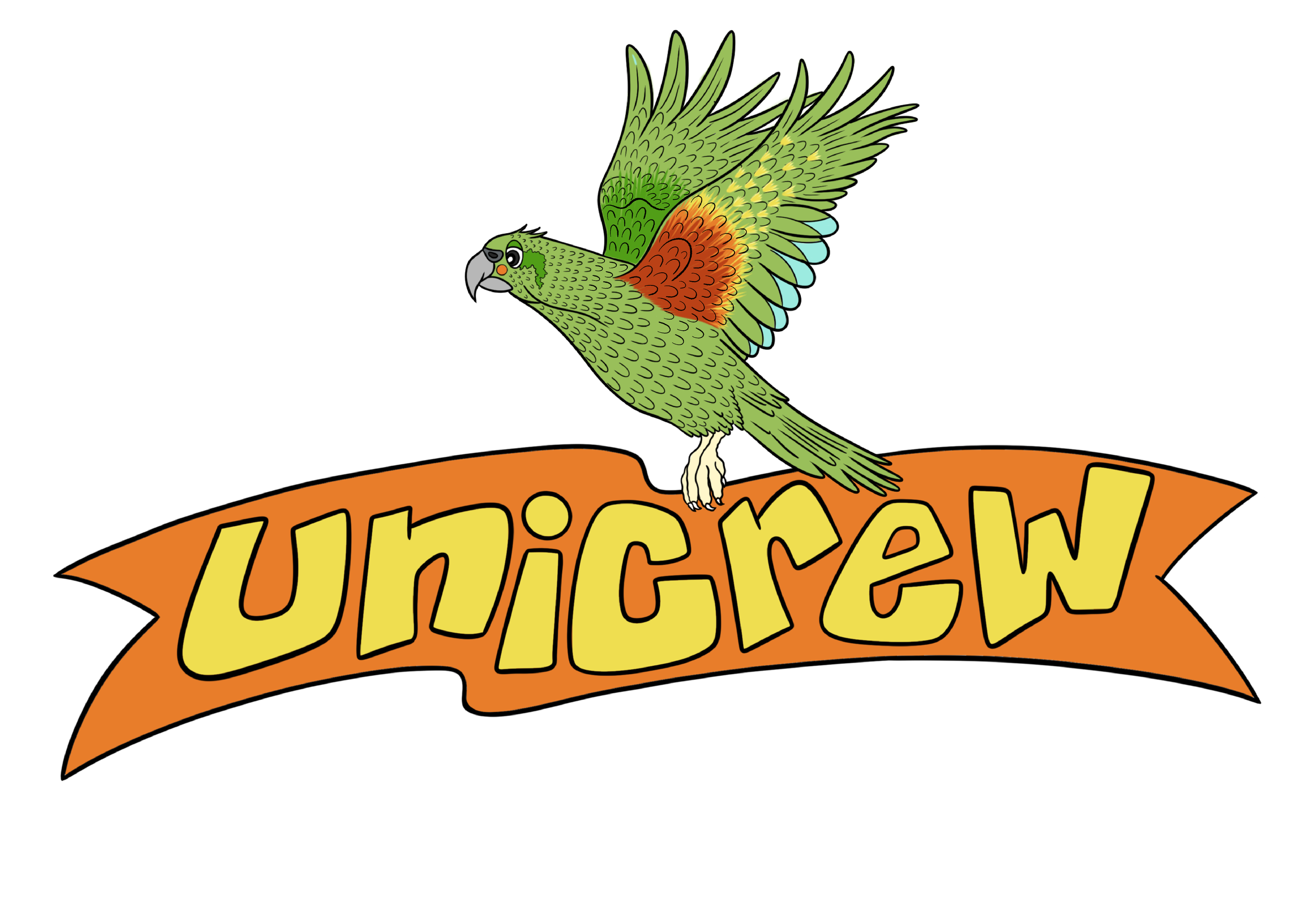Unlearn
How do we do learning?
First, let’s get a few things straight. UniCrew and the Social Impact Studio are spaces for belonging, community, well-being, and development for all students. We’re committed to being constant learners and to creating more equitable spaces, therefore, we must reflect to ensure that what we offer YOU continues to be guided by diverse ways of being and notions of what community in action looks like.
This includes critically reflecting on volunteering - what is it? Who does it benefit? What structures of power does it uphold?
So what is volunteering?
As part of a University on a journey to becoming a Te Tiriti led insitution, it is important we recognise and uplift Tangata Whenua and Te Ao Māori in this journey. We mihi to Mahi Aroha as kete to hold community, service, and ‘volunteering’. Volunteering within the mainstream Pākehā, Eurocentric, lens is understood as an idea that a “x (the giver) gives their time to y (the person/people in need)” based on ‘helping’ and ‘charity’. This is a unilateral perception, rather than community centred. A critical unpacking of this definition and application is necessary, as we begin to understand how this structure upholds systems of White Supremacy, White Saviourism, power imbalances, inequities and cultural superiority. We must ask ourselves why this definition of volunteering exists and who benefits from it.
Let’s rethink common narratives around volunteering:
What is recognised as volunteering, and who is a volunteer? Eurocentric conceptions of volunteering endure… the givers are often presumed to be white people
Does volunteering always help those on the receiving end? No. Our good intentions are not sufficient to do good. Many acts of aid or volunteering are problematically powered by an internal need of the ‘giver’ to do good and ‘help’. This can override the imperative to listen and really understand what a person or community needs to allow themselves to flourish. There are many examples of humanitarian aid, volunteering etc that whilst well intended have destructive consequences for community and environment.
Is generosity of time enough? No. Certain community work requires specific skills and cultural understandings, without which we may be perpetuating harm. Is it kind and crucial that we ask whether we are the right person to do the mahi so that it is meaningful and impactful, and not a mere conscious clearer on our part.
Does volunteering give people a moral high ground? No. In many ways having the time, transport, economic stability, physical ability etc to do unpaid work is a privilege. Accessibility of volunteering is an important factor we must consider. This narrative also silences those activities that often go overlooked within mainstream volunteering: for example, those who support family members or support their local community spaces.
Power imbalances. Anytime there is a power imbalance between the person/space ‘giving’ and those ‘receiving’ there is a danger of manipulation. We must be aware of the privilege we hold and actively deconstruct power hierarchies in our community mahi.
Volunteering vs Systemic Solutions. We must not confuse doing voluntary mahi with providing systemic and structural solutions to historical and ongoing inequities that continue to demand the need for volunteering. Ask yourself: What historical and contemporary socio-political processes, events and narratives led to people/communities being disproportionately affected by social issues? How can these be systemically addressed? What is my role in this? How do I personally benefit from these processes? And, how can I actively deconstruct this privilege?
Why is this important to say? Because the context of whakawhanaungatanga enables an environment where you can better connect with us when you know where we’re at. We mihi to other spaces that recognise eurocentricity and privilege are in many volunteering spaces, and do the mahi to acknowledge, unpack, listen and create something new.
